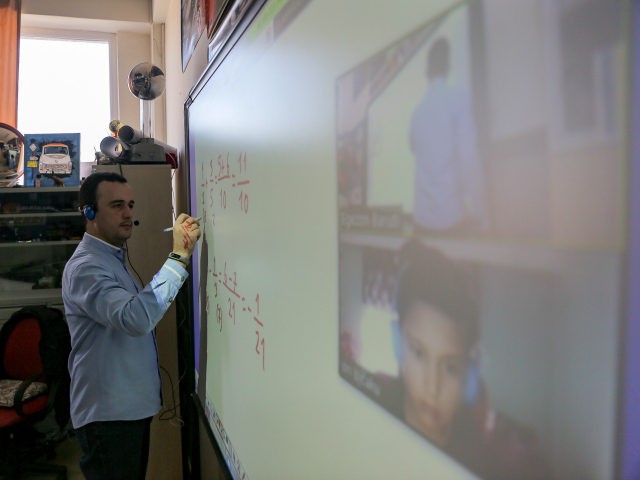Maryland’s superintendent of schools said she is “not sure” school will look the same for K-12 students “going forward” after the coronavirus pandemic subsides.
According to a report at WBAL TV Thursday, which was focused on a Democrat lawmaker’s proposal to implement a year-round school schedule for students in the state, Superintendent Karen Salmon reacted, “I think that we always, certainly, entertain conversations about going forward, but I would even like to take it further, and that is, I’m not sure we are going to be doing school in the same way going forward.”
Salmon said she would like to focus on expanding distance or online learning, which students are primarily engaged in during the coronavirus crisis.
Last week, Salmon urged school districts across Maryland to ramp up online learning.
“I am really focusing much of our resources on the expansion and the accountability wrapped around online learning and distance learning,” she said, reported the Daily Record. “That’s going to be our focus right now because it has to be.”
Salmon has been a proponent of online learning and said the current crisis has underscored the need for schools to move in this direction.
“We have to ramp this up because this is the 21st century,” she said.
The state schools chief added that, even in rural areas, schools are taking innovative approaches to allow students online access: “The other thing that school systems have been doing is, where they did not have a one-to-one device, they are purchasing additional devices for their students and then handing them out with the food deliveries.”
State Sen. Paul Pinsky (D), however, characterized the fact that students are not currently in school as a “loss.” He proposed a permanent year-round schedule for K-12 public school students.
“I suggest an immediate conversation about starting year-round school, either in pilot areas or countywide, beginning, possibly, this summer or next,” Pinsky wrote in a letter to officials, including Salmon.
As WBAL TV reported, Pinsky, who hails from Prince George’s County, is pitching a plan in which students would attend school for nine or ten weeks for each of four quarters of the year, with four corresponding breaks or vacations, including a longer summer break.
During a conference call on coronavirus planning, Pinsky said:
If there is any time to start looking at this, given this loss and having the coming summer and the fall and the following summer, it seems like it’s an ideal time to begin to have a conversation with local superintendents, local Boards of Education, of considering using year-round schools.
However, according to the Nation’s Report Card test results released in October, for students actually attending public schools in Maryland, fourth-grade reading scores showed a drop of five points from 2017 to 2019. Only 35 percent of students were at or above the proficiency level in reading in the state.
Among Maryland eighth-graders, reading scored dropped by three points. Only 36 percent of students in this grade were shown to be at or above the proficiency level in reading.
In math, only 39 percent of the state’s fourth-graders and 33 percent of eighth-graders were at or above proficiency in that subject. Fourth-graders dropped three points in math since 2017, and eighth-graders remained at the same level.
Reacting to poor national results on the assessments taken by students who attend schools, Peggy Carr, associate commissioner of the National Center for Education Statistics (NCES), said, according to Education Week:
Over the past decade, there has been no progress in either mathematics or reading performance, and the lowest-performing students are doing worse. In fact, over the long term in reading, the lowest-performing students—those readers who struggle the most—have made no progress from the first NAEP administration almost 30 years ago.
Media outlet Education Dive reported the coronavirus crisis “will likely lead to many functional changes in the way schools are run and how they prepare for any type of disaster that prevents students from going to school.”

COMMENTS
Please let us know if you're having issues with commenting.